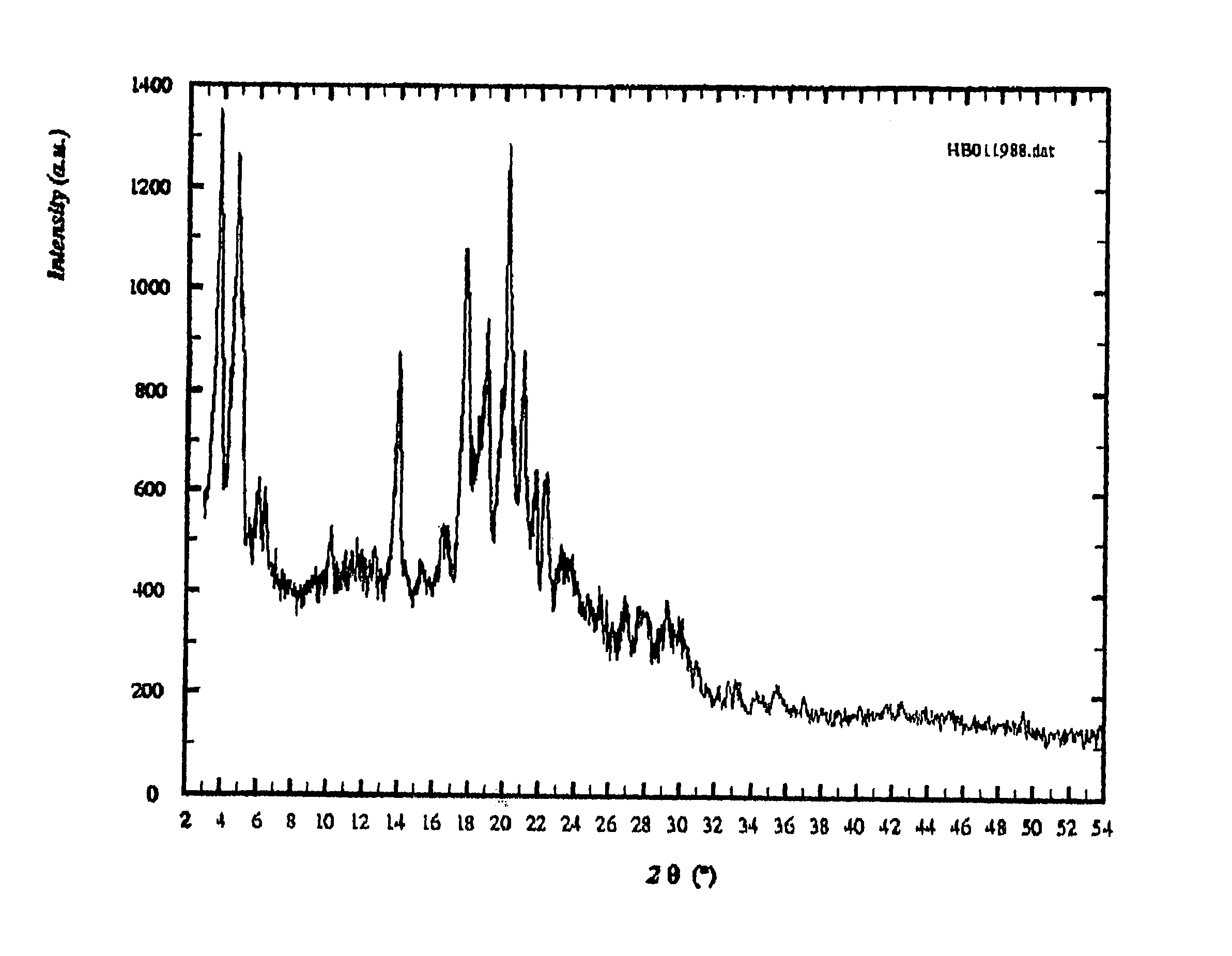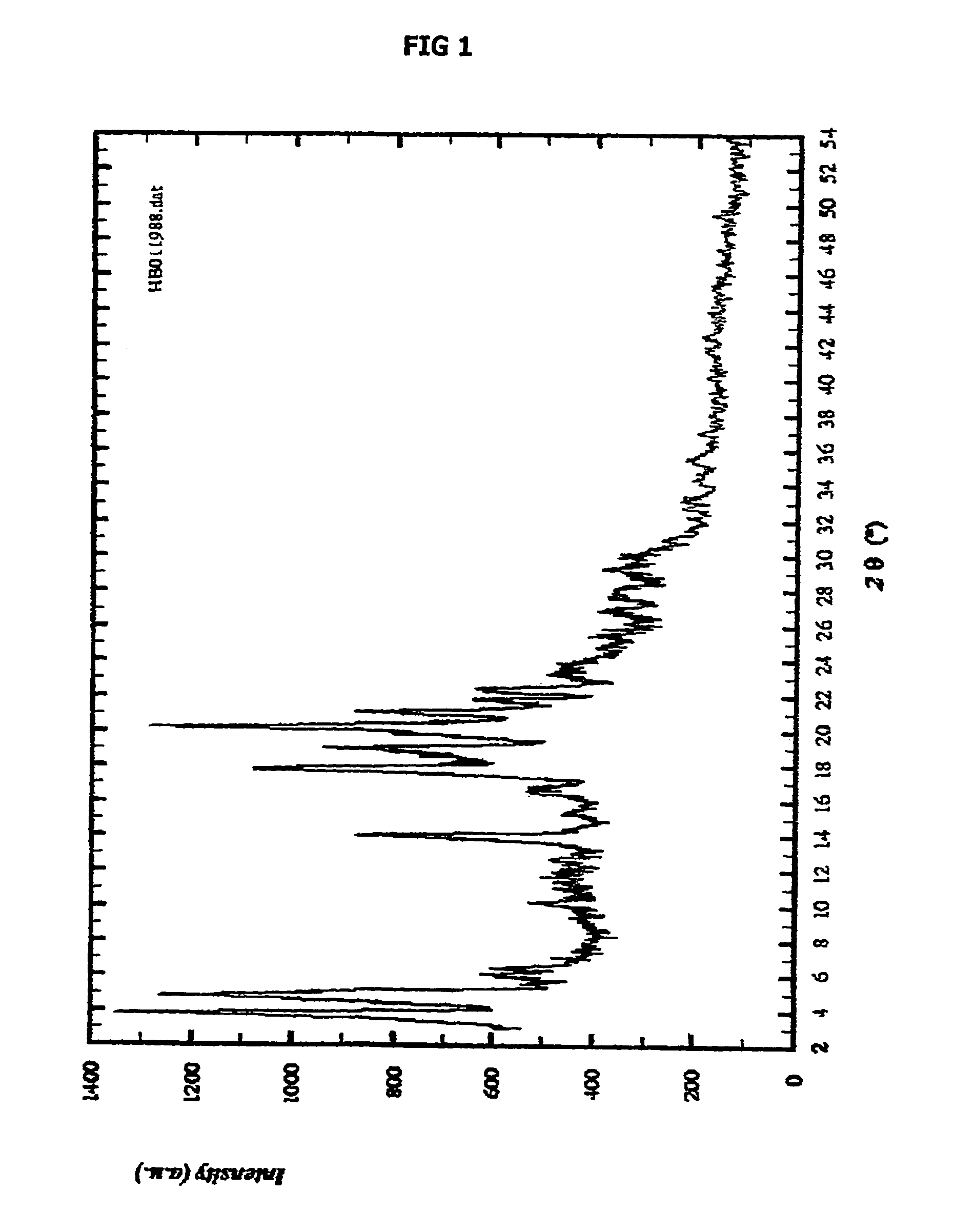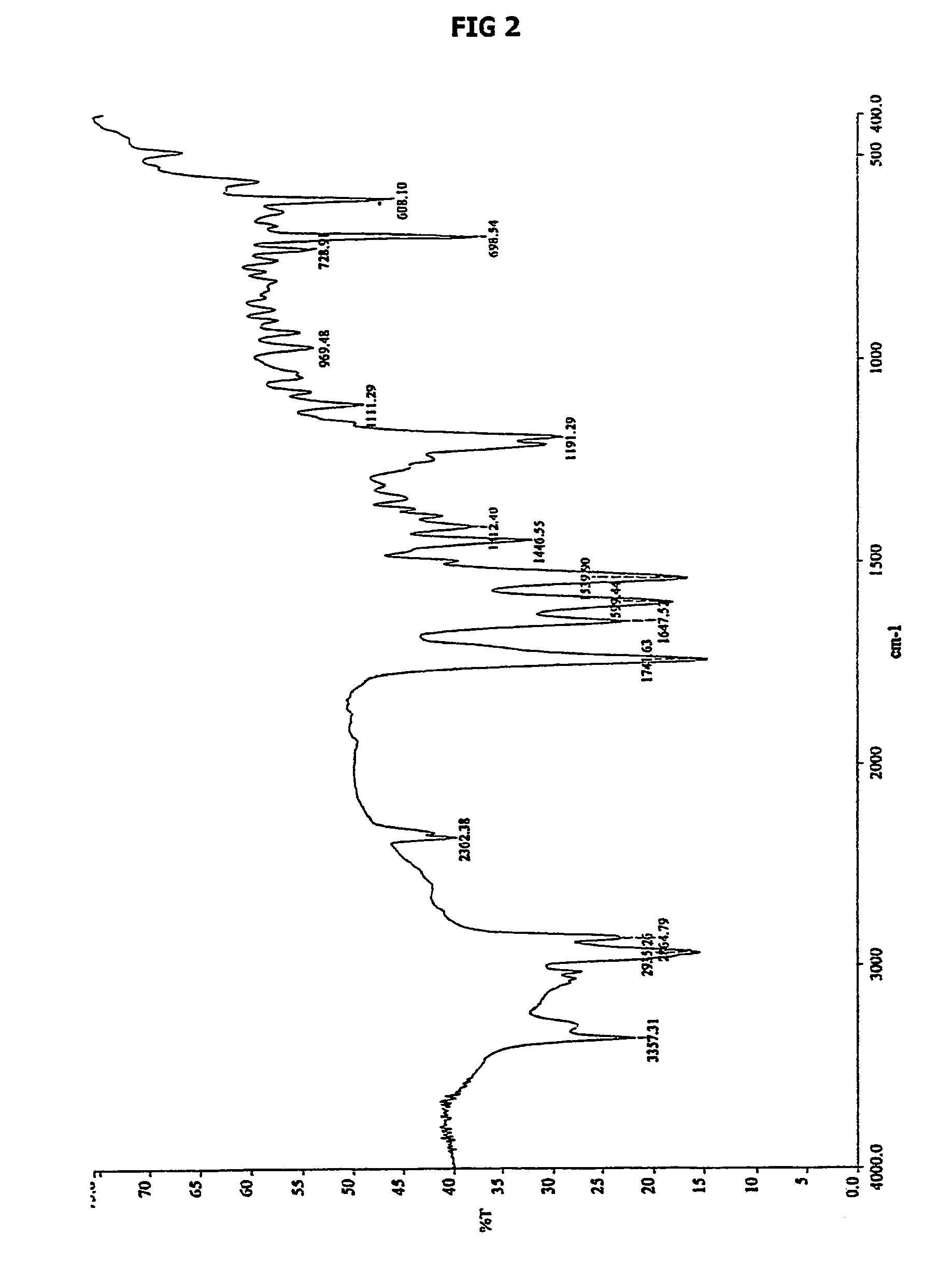Form of N-(trans-4-isopropylcyclohexylcarbonyl)-D-phenylalanine
a technology of cyclohexylcarbonyl and n-phenylalanine, which is applied in the field of new crystalline form of n(trans4isopropylcyclohexylcarbonyl)dphenylalanine, can solve problems such as instability of b-type crystals
- Summary
- Abstract
- Description
- Claims
- Application Information
AI Technical Summary
Benefits of technology
Problems solved by technology
Method used
Image
Examples
example 1
[0043]N-(trans-4-isopropylcyclohexylcarbonyl)-D-phenylalanine methyl ester (Method A): D-Phenylalanine methyl ester hydrochloride (10 g, 0.046 mol) was suspended in a solution of triethylamine (33 mL) in dichloromethane (50 mL). The mixture was cooled to 0-5° C. and trans-4-isopropylcyclohexane carboxylic acid (7.9 g, 0.046 mol) was added. A solution of propane phosphonic acid anhydride (46.4 mL, 0.046 mol) in ethyl acetate was added dropwise over a period of 30 minutes, maintaining the temperature at 0-5°. The resulting mixture was stirred for 14 hours at ambient temperature. The reaction mixture was washed with 1.5 N HCl, 5% sodium bicarbonate solution and brine. The organic layer was concentrated to yield 12.5 g of N-(trans-4-isopropylcyclohexylcarbonyl)-D-phenylalanine methyl ester.
example 2
[0044]N-(trans-4-isopropylcyclohexylcarbonyl)-D-phenylalanine methyl ester (Method B): D-Phenylalanine methyl ester hydrochloride (20 g, 0.092 mol) was suspended in a solution of triethylamine (66 mL) in dichloroethane (100 mL) and the mixture was stirred for 1 hour at room temperature. The organic layer was separated after washing with water and dried over anhydrous sodium sulphate. Trans-4-isopropylcyclohexane carboxylic acid (15.8 g, 0.092 mol) was added to the organic layer followed by LiOH—Al2O3 (5.5 g of LiOH adsorbed on 40.5 g aluminum oxide) and the resulting mixture heated at for 24 hours. The reaction mixture was filtered through a celite bed and washed with 1.5 N HCl, 5% sodium bicarbonate solution and brine. The organic layer was concentrated to yield 15.5 g of N-(trans-4-isopropylcyclohexylcarbonyl)-D-phenylalanine methyl ester.
example 3
[0045]N-(trans-4-isopropylcyclohexylcarbonyl)-D-phenylalanine methyl ester (Method C): D-Phenylalanine methyl ester hydrochloride (26 g, 0.12 mol) was suspended in a solution of triethylamine (85 mL) in dichloromethane (125 mL) and the mixture was cooled to 0-5° C. A solution of trans-4-isopropylcyclohexane carbonyl chloride (25 g, 0.13 mol) in dichloromethane (75 mL) was added dropwise over a period of 10 minutes while maintaining the temperature at 0-5° C. The resulting mixture was stirred for 12 hours at ambient temperature then washed with 1.5 N HCl, 5% sodium bicarbonate solution and brine. The organic layer was concentrated to yield 38 g of N-(trans-4-isopropylcyclohexylcarbonyl)-D-phenylalanine methyl ester.
PUM
| Property | Measurement | Unit |
|---|---|---|
| melting point | aaaaa | aaaaa |
| reaction temperature | aaaaa | aaaaa |
| melting point | aaaaa | aaaaa |
Abstract
Description
Claims
Application Information
 Login to View More
Login to View More - R&D
- Intellectual Property
- Life Sciences
- Materials
- Tech Scout
- Unparalleled Data Quality
- Higher Quality Content
- 60% Fewer Hallucinations
Browse by: Latest US Patents, China's latest patents, Technical Efficacy Thesaurus, Application Domain, Technology Topic, Popular Technical Reports.
© 2025 PatSnap. All rights reserved.Legal|Privacy policy|Modern Slavery Act Transparency Statement|Sitemap|About US| Contact US: help@patsnap.com



